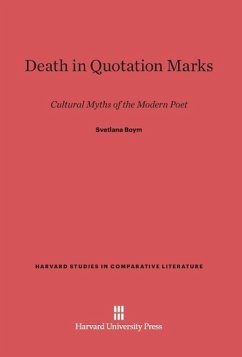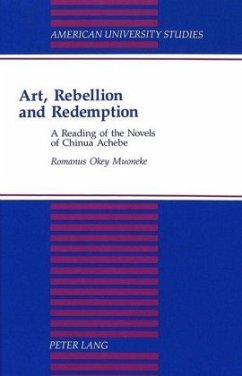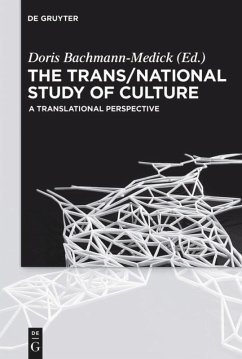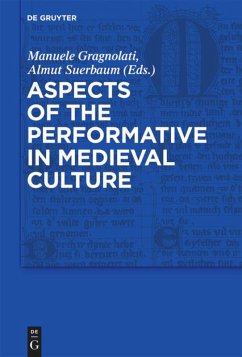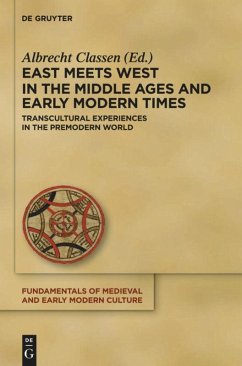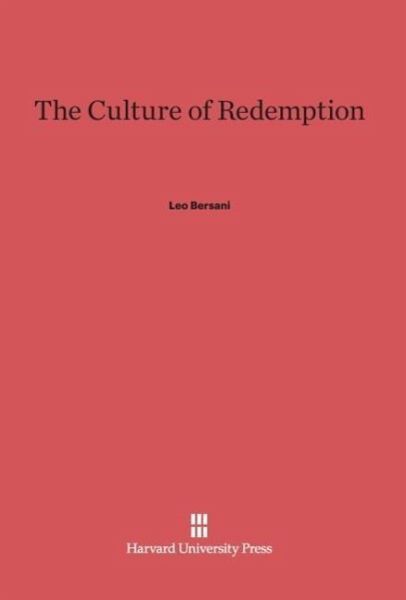
Leo Bersani
Gebundenes Buch
The Culture of Redemption
Versandkostenfrei!
Versandfertig in 6-10 Tagen

PAYBACK Punkte
22 °P sammeln!





No detailed description available for "The Culture of Redemption".
Bersani Leo: Leo Bersani is the Class of 1950 Professor of French at the University of California, Berkeley.
Produktdetails
- Verlag: De Gruyter
- 1990.
- Seitenzahl: 240
- Erscheinungstermin: 5. Februar 1990
- Englisch
- Abmessung: 236mm x 160mm x 19mm
- Gewicht: 514g
- ISBN-13: 9780674734265
- ISBN-10: 0674734262
- Artikelnr.: 39703375
Herstellerkennzeichnung
Die Herstellerinformationen sind derzeit nicht verfügbar.
I find Bersani's message irresistible and exhilarating, one that provokes an act of recognition on the same order as viewing the emperor's new clothes...It is, I believe, prescient as well. For Bersani's path-breaking formulations help make way, during this brief, odd period of transition, for new shapes of art having little to do with 'modern' or 'postmodern'--for those playful modes just now beginning to imagine themselves.
Bersani is one of the best essayists and readers now writing, in or outside the academy. Learned and precise, his best essays reinterpret both a specific text and the cultural moment. The finest chapters are those devoted to Marcel Proust and Melanie Klein, to Freud, to Baudelaire, Benjamin, and Nietzsche, and
Bersani is one of the best essayists and readers now writing, in or outside the academy. Learned and precise, his best essays reinterpret both a specific text and the cultural moment. The finest chapters are those devoted to Marcel Proust and Melanie Klein, to Freud, to Baudelaire, Benjamin, and Nietzsche, and
Mehr anzeigen
above all a profound piece on the unjustly neglected André Malraux and on Georges Bataille.
In a world where literary criticism is subject to the grossest forms of overproduction and where critical books that matter, and have something of general importance to say to our culture, are extremely rare, Bersani's will stand out as one of the half dozen or so by which its decade will be remembered.
Brilliant...[Bersani's] 'culture of redemption'...holds that literature is not there to stir us to erotic excitement as we read but to reaffirm us in our egos, and that the grand designs of art are grand because they compensate us for the tedium, pain and disorder of reality. Such a philosophy of art, Mr. Bersani suggests, devalues both reality and art--reality because once it is thus redeemed the real is dead, its uniqueness having been sacrificed in the cause of intelligibility; and art because it now appears as some sort of repair kit, a merely rational, insufficiently pleasurable makeweight for the shortcomings of life...[Bersani's] post-modern culture of narcissism may have no hope of ever replacing the old culture of redemption, but in putting its case with such admirable eloquence and sophistication he has brought real light to the dark question of how we may relate, as selves, to any culture at all.
In a world where literary criticism is subject to the grossest forms of overproduction and where critical books that matter, and have something of general importance to say to our culture, are extremely rare, Bersani's will stand out as one of the half dozen or so by which its decade will be remembered.
Brilliant...[Bersani's] 'culture of redemption'...holds that literature is not there to stir us to erotic excitement as we read but to reaffirm us in our egos, and that the grand designs of art are grand because they compensate us for the tedium, pain and disorder of reality. Such a philosophy of art, Mr. Bersani suggests, devalues both reality and art--reality because once it is thus redeemed the real is dead, its uniqueness having been sacrificed in the cause of intelligibility; and art because it now appears as some sort of repair kit, a merely rational, insufficiently pleasurable makeweight for the shortcomings of life...[Bersani's] post-modern culture of narcissism may have no hope of ever replacing the old culture of redemption, but in putting its case with such admirable eloquence and sophistication he has brought real light to the dark question of how we may relate, as selves, to any culture at all.
Schließen
Für dieses Produkt wurde noch keine Bewertung abgegeben. Wir würden uns sehr freuen, wenn du die erste Bewertung schreibst!
Eine Bewertung schreiben
Eine Bewertung schreiben
Andere Kunden interessierten sich für


